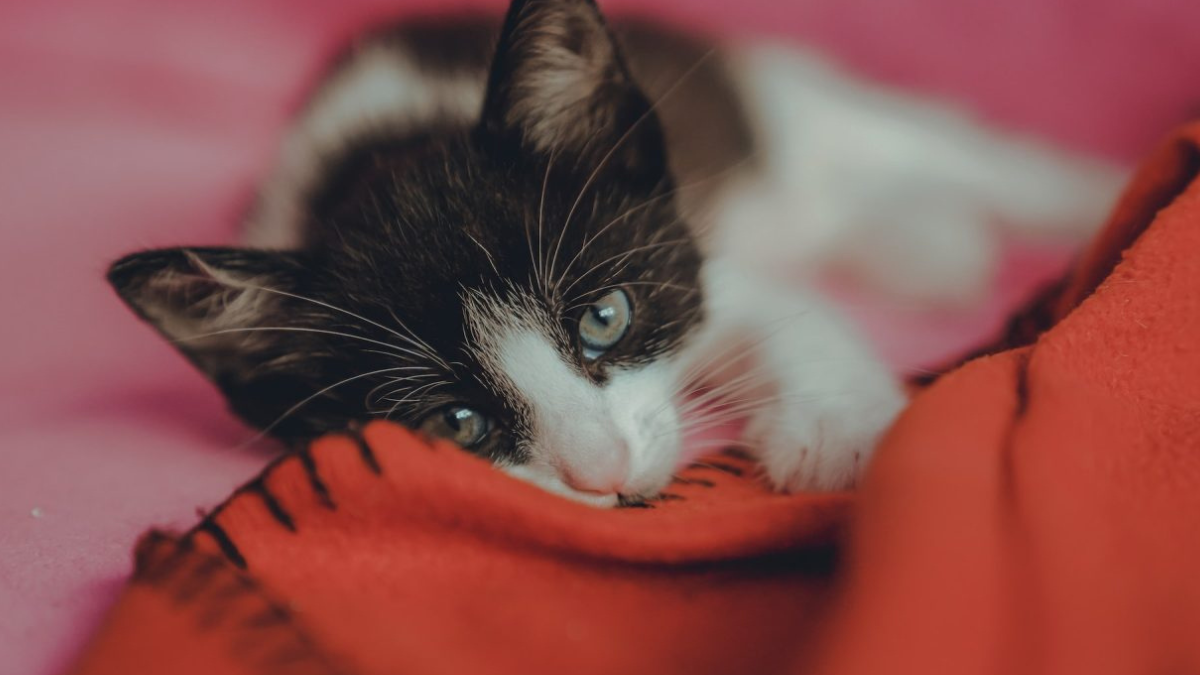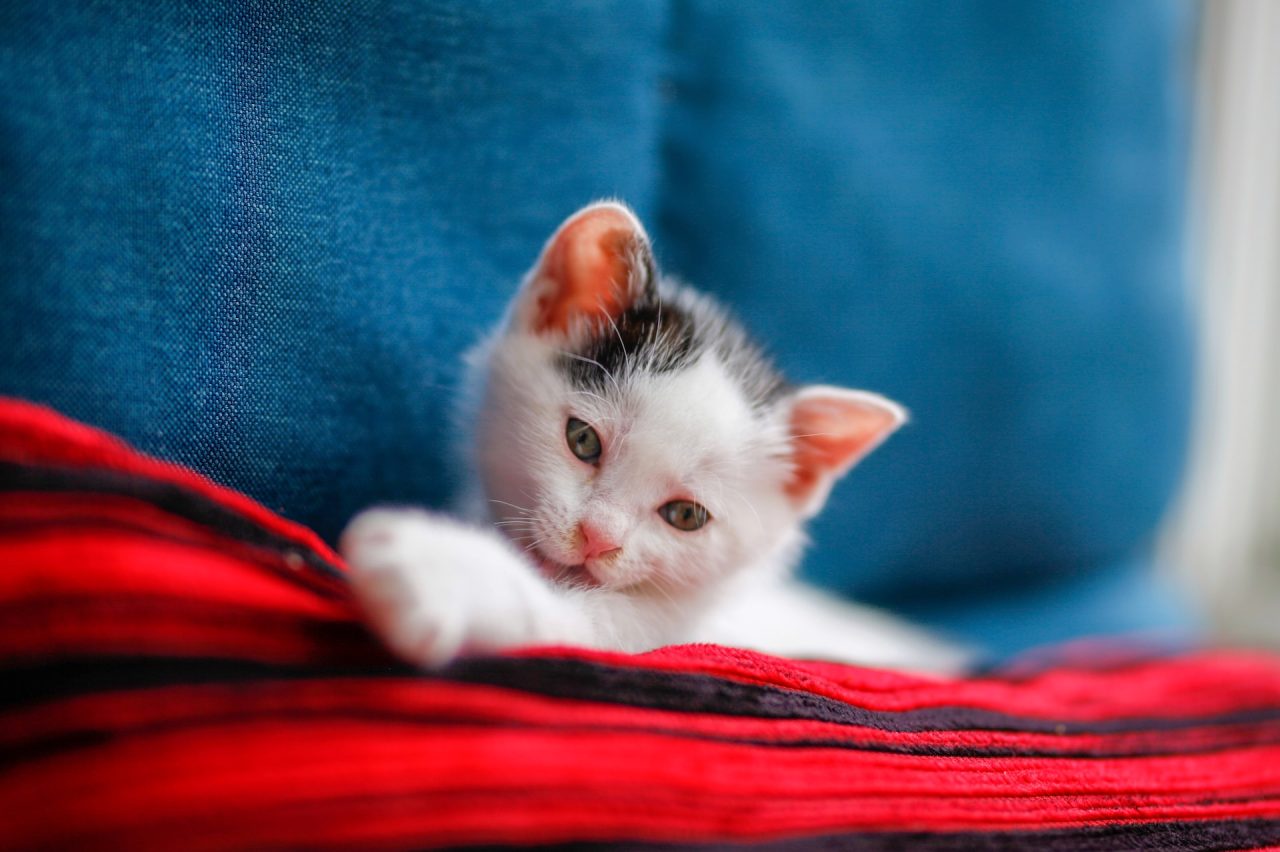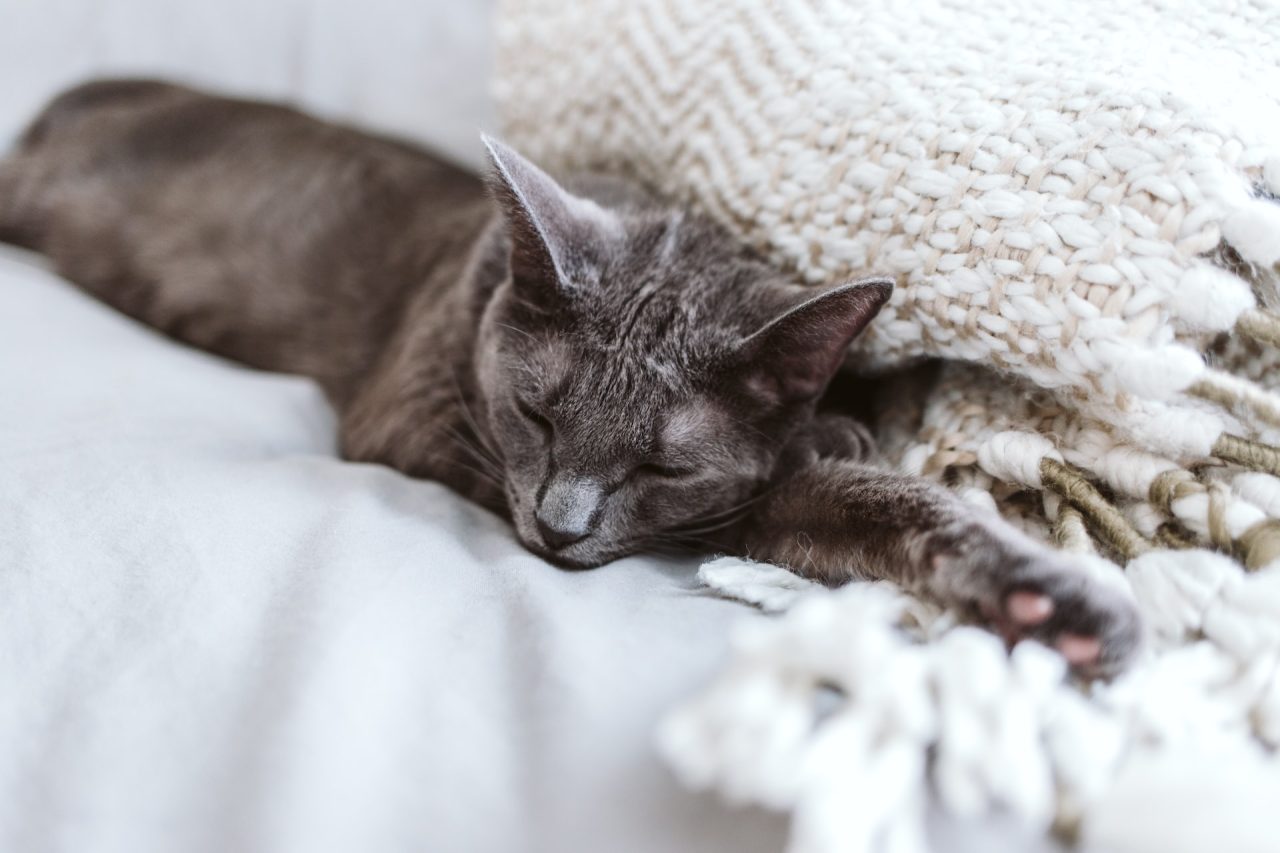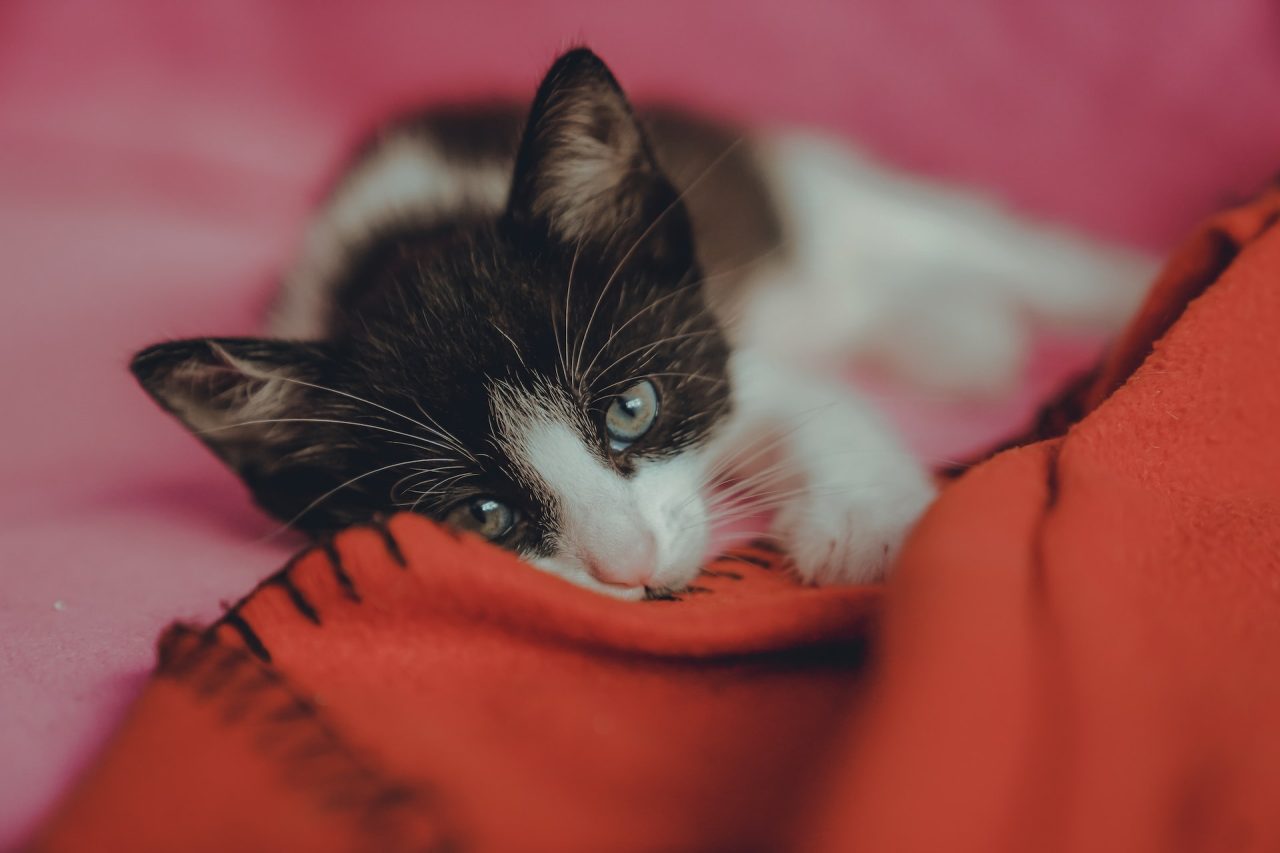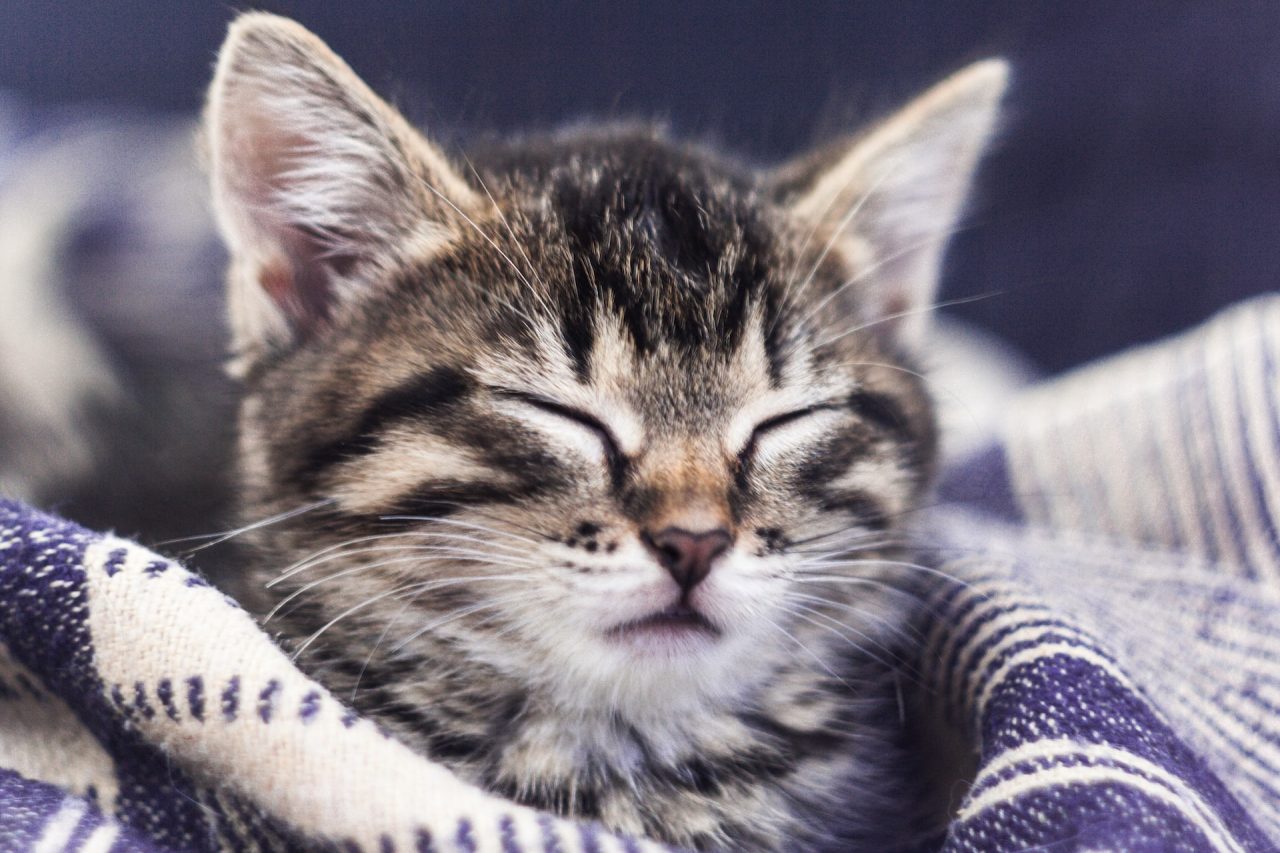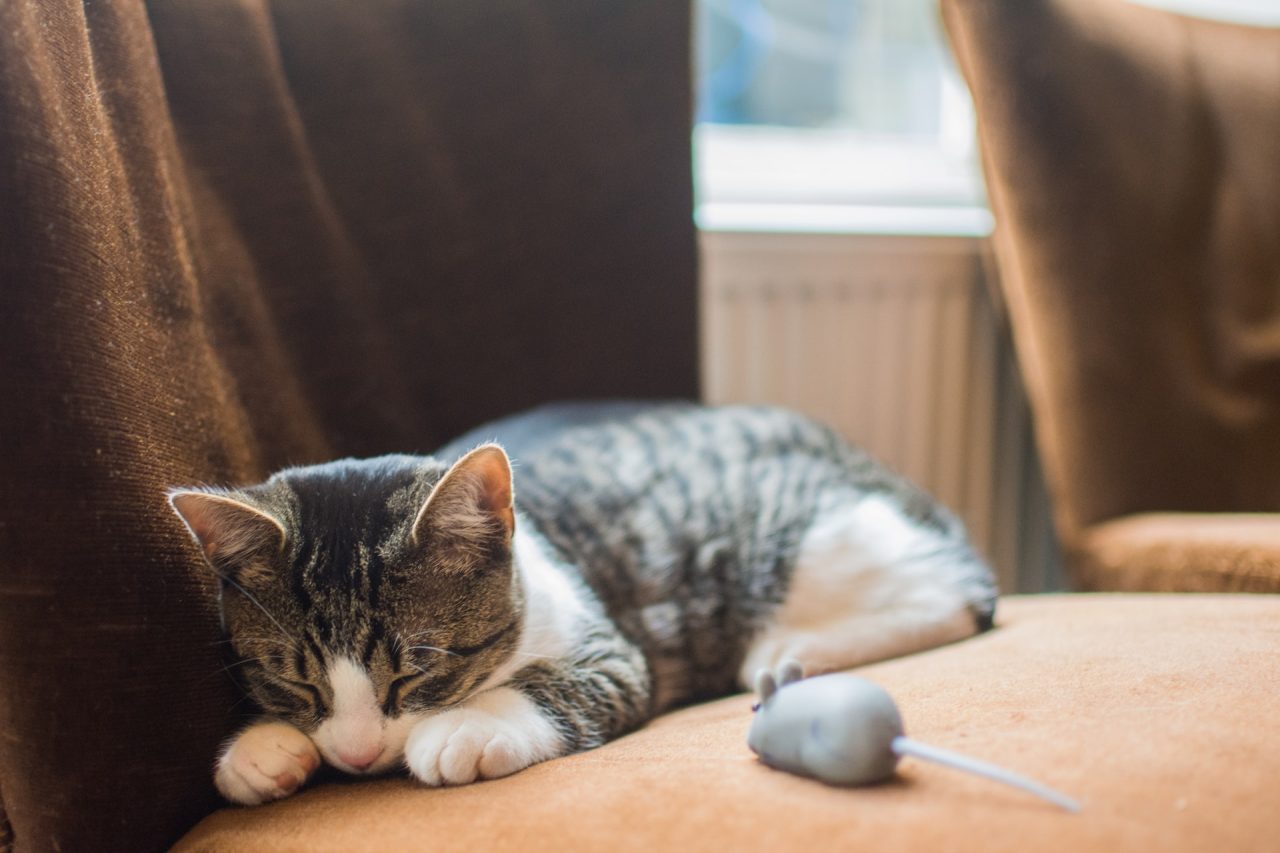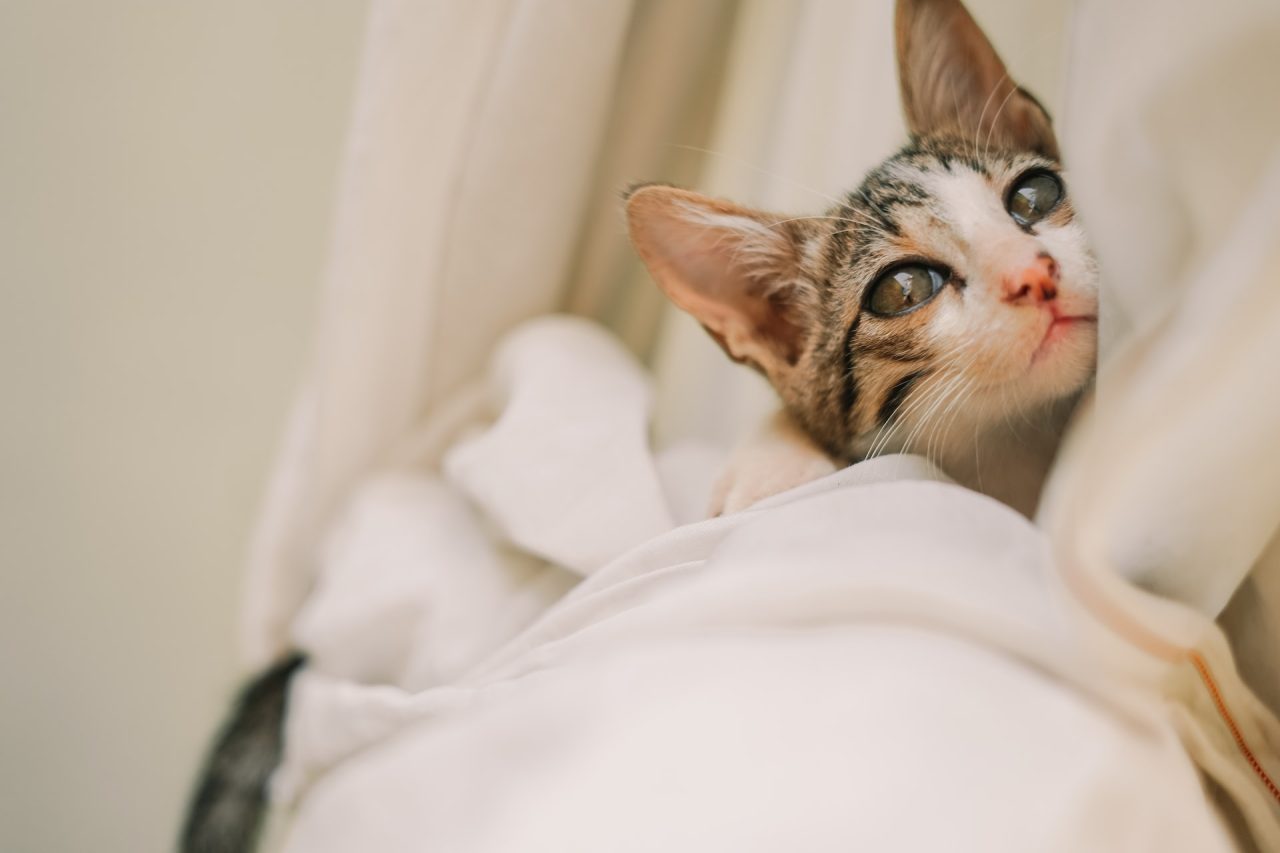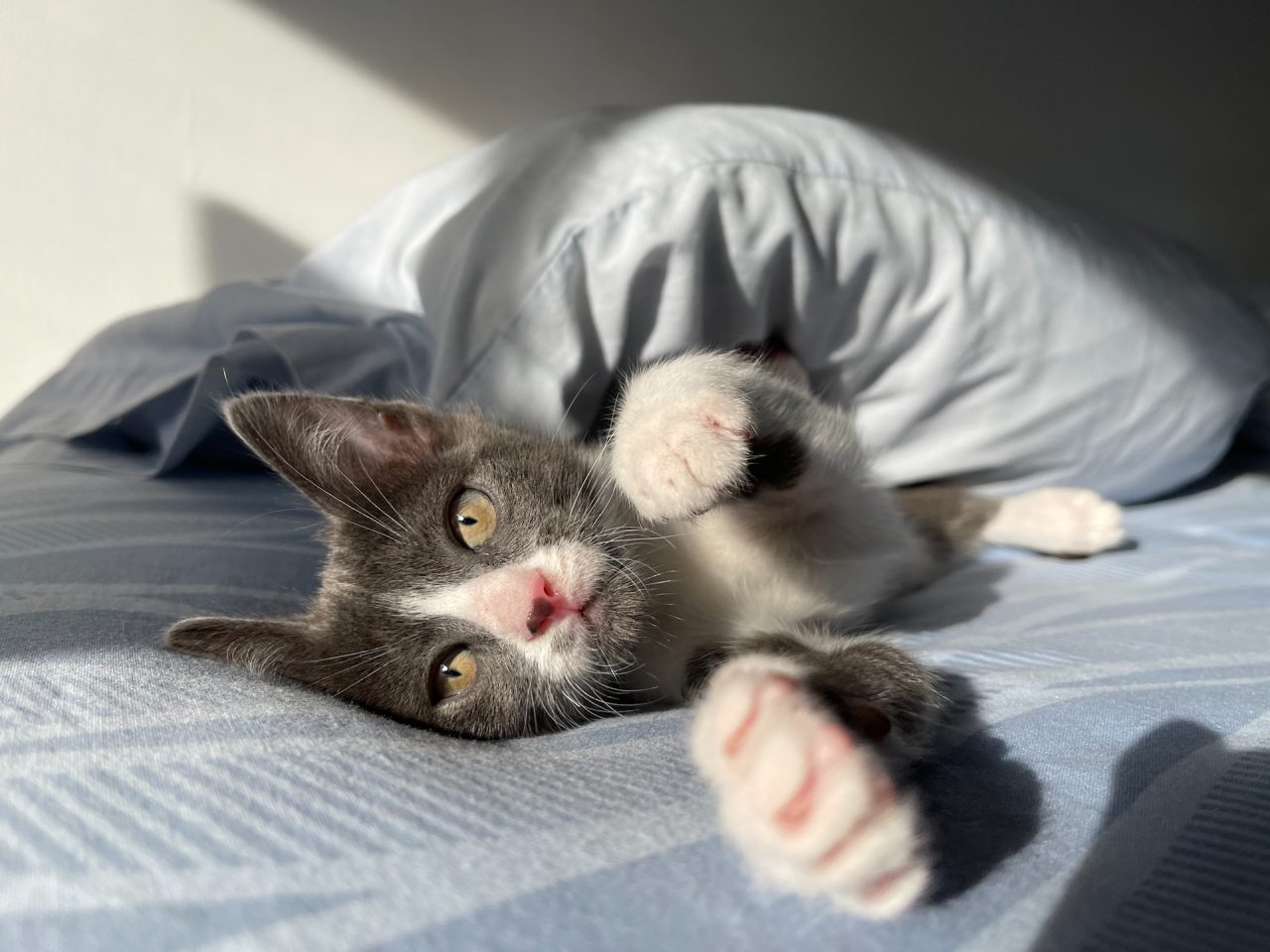📖 Table of Content:
Cats can surprise us with some new weird actions every day. And they always leave us wondering what’s on their mind. One of those things includes spending a lot of time with the soft items around the house. And I’m sure you can’t help but think “Why do cats knead and bite blankets?“
Every time your pet does something, you get a feeling that you’re the only owner who has to deal with such a thing. It’s especially true when you have a cat. Because they’re the animals who display the strangest kinds of behavior on a daily basis. And kneading and biting blankets is just one of them.
Luckily for you, you’re not the only feline owner who asked the same question. And I’m ready to share all the knowledge I have with you. I hope it will help you understand your fluffy friend better and you’ll finally get closer to figuring out what’s going on in her head.
1) It’s a nursing technique
If you’re wondering why cats knead and bite blankets, you might be surprised to hear that it’s their natural behavior. But how? It starts from the moment the kitten is born. They’ve been “kneading” from their nursing days as that movement stimulates the production of milk.
They can keep doing it even after they stop drinking their mother’s milk. This behavior makes them feel safe, loved, and relaxed. It’s their comfort zone.
Some kitties can continue doing this even when they’re older, especially if they’ve been separated from their mothers at an early age. Kneading on different soft objects makes them feel like they’re close to their mother.
That’s how many cats end up spending their time biting their blankets. Even though it sounds like an unusual behavior it’s actually much more common than you would think it was. It’s simply a comforting habit that reminds your cat of her mother.
2) Cats are marking their territory
If you go back to the beginning of this article you’ll be able to see that I’ve actually mentioned this. Cats like to mark their territory but they always do it in the cleanest ways possible. So they’ll use their paws and the sweat glands will help them leave their scent on things they’ve chosen.
It’s always going to be their favorite item or part of the house. Your kitty likes soft things because they feel nice and she won’t risk anyone taking them from her. So if you have more than one cat you can be pretty sure that they are marking their favorite spots around your home.
That way, they avoid unnecessary fights and stressful moments. They might seem like animals that are always ready to fight (and they are), but they still prefer to have their own peace.
3) Wild cat instincts
Of course, everybody knows that cats weren’t always domesticated animals. They have pretty scary, dangerous, fascinating, and wild ancestors. I’m sure you’ve heard about them. You know…tigers, leopards, jaguars…
Well, your cute fluffy friend still shares some personality traits with them, as they can be passed down through generations. It is no surprise that some of her behavior is similar to something her distant cousins do.
Cats who live in the wilderness knead the ground around them so they can put grass and leaves there in order to make a comfy bed or a perfect place to give birth at. So if you notice your cat kneading an area before she sits or lays to take a nap, this might be the reason why.
In addition to this, it can still be connected to marking her territory as wild cats do the same thing when they find their favorite spot.
4) It helps them relax
Kneading on their mother while nursing makes cats feel relaxed. And when they get separated from their mothers they are looking for something that would make them feel the same way. And in that search, they often find soft items very comforting.
Cats feel vulnerable while they eat and sleep. Since they can’t bite the blanket while eating, the only option that’s left is doing it before taking a nap. They do that because it can create a sense of safety. How? It reminds them of their mothers and times when they felt safest.
You’ll often hear your cat purr while she’s cuddling with a soft blanket, pillow, or even one of your plush toys. Honestly, it’s such a good way to relax that we should also copy their behavior. Napping while holding something that calms us down is a purrfect idea.
5) It’s a sign of trust
If you have a kitty who spends most of her time cuddling and biting her blanket, then it could mean that she feels comfortable in her environment. She’s enjoying the soft textures that are around her and it’s relaxing her.
As I’ve already mentioned if you hear her making purr sounds you can sleep peacefully knowing that she’s just a happy little cat whose favorite part of the day is chilling in her soft blanket. If she’s feeling like that while she’s near you, you can be sure that she trusts you and loves living with you so much.
When you think about it, it’s similar to what we do during those cold winter nights. Crawl to our beds and hug our soft blankets while watching our favorite Christmas movies.
6) Pica syndrome
Have you ever heard about pica? It’s a condition that both humans and animals can suffer from. Even though it’s not something we hear people talking about on a daily basis, it’s still a common issue that many have to face.
To explain it to you in the simplest way, it’s a condition that makes your cat try to eat inedible objects she finds. Those are usually materials that are unhealthy such as plastic, wood, or synthetic fabrics. Cats with pica would constantly chew or lick the objects they can’t eat.
If your cat is doing this with her blanket all the time, then it might be a good thing to call your vet and ask for their opinion. Better safe than sorry!
7) Dental issues
Another possible health issue that might be the reason your cat is doing this might be of dental nature. Some cats knead and bite blankets to ease their toothache. If this is the reason then you’ll probably see your cat aggressively pulling the blanket or chewing on it.
That way they’re trying to help themselves, but also to catch your attention. They are smart animals and they know that if you notice anything unusual in their behavior, you’ll react. And they’re hoping that you won’t ignore their call for help.
So, if you notice that your cat is doing this it’s likely that she’s dealing with gum disease or tooth decay. And the best way to solve this problem is again to take he
